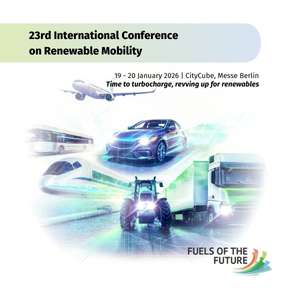Aviation biofuels have potential to be competitive by 2020
Analysis company Bloomberg New Energy Finance have published forecasts suggesting that, if production efficiency continues to improve, the cost of some biofuels could be similar to that of conventional jet fuel by 2018.
However, the study also showed that airlines might end up using only a modest proportion of biofuels (2% or less) in their fuel mix in the next few years.
‘The problem is that for the foreseeable future, even when the economics make sense, there will simply be limited availability of certified and relatively low-cost biofuel,’ says Harry Boyle, lead bioenergy analyst at Bloomberg New Energy Finance. ‘If governments want airlines to burn a significant proportion of non-fossil fuel before 2020, they will have either to subsidise advanced-but-not-yet-economic biofuels or, more likely, introduce mandates requiring carriers to use a certain percentage of sustainable biofuels in their mix, and put up with complaints that this is driving up ticket prices.’
By 2018, biofuels made from the hydro-treatment of non-food vegetable oils like jatropha or camelina, or from the pyrolysis of cellulosic feedstocks, should be the first types to become properly competitive after the move to large-scale production. Jatropha, for example, has the potential to produce jet fuel at $0.86 (€0.65) per litre by 2018.
The International Air Transport Association has incited that by 2020, 6% of jet fuel, or 8 billion litres, should be made up of biofuels. On top of this, the European Union has extended its Emission Trading Scheme to the airline industry this year, forcing carriers using EU airspace to purchase allowances so as to offset their CO2 emissions.
‘The move by the European Union to bring all airlines into the EU-ETS carbon trading scheme has focused the minds of airlines around the world on reducing their carbon emissions. While European carbon credits at the moment are so cheap they have negligible effects on ticket prices, biofuels will be competitive within a decade,’ says Michael Liebreich, chief executive of Bloomberg New Energy Finance. ‘However, available volume is going to be limited and airlines will be in competition for it, so those airlines which move now are likely to have an advantage later.’











